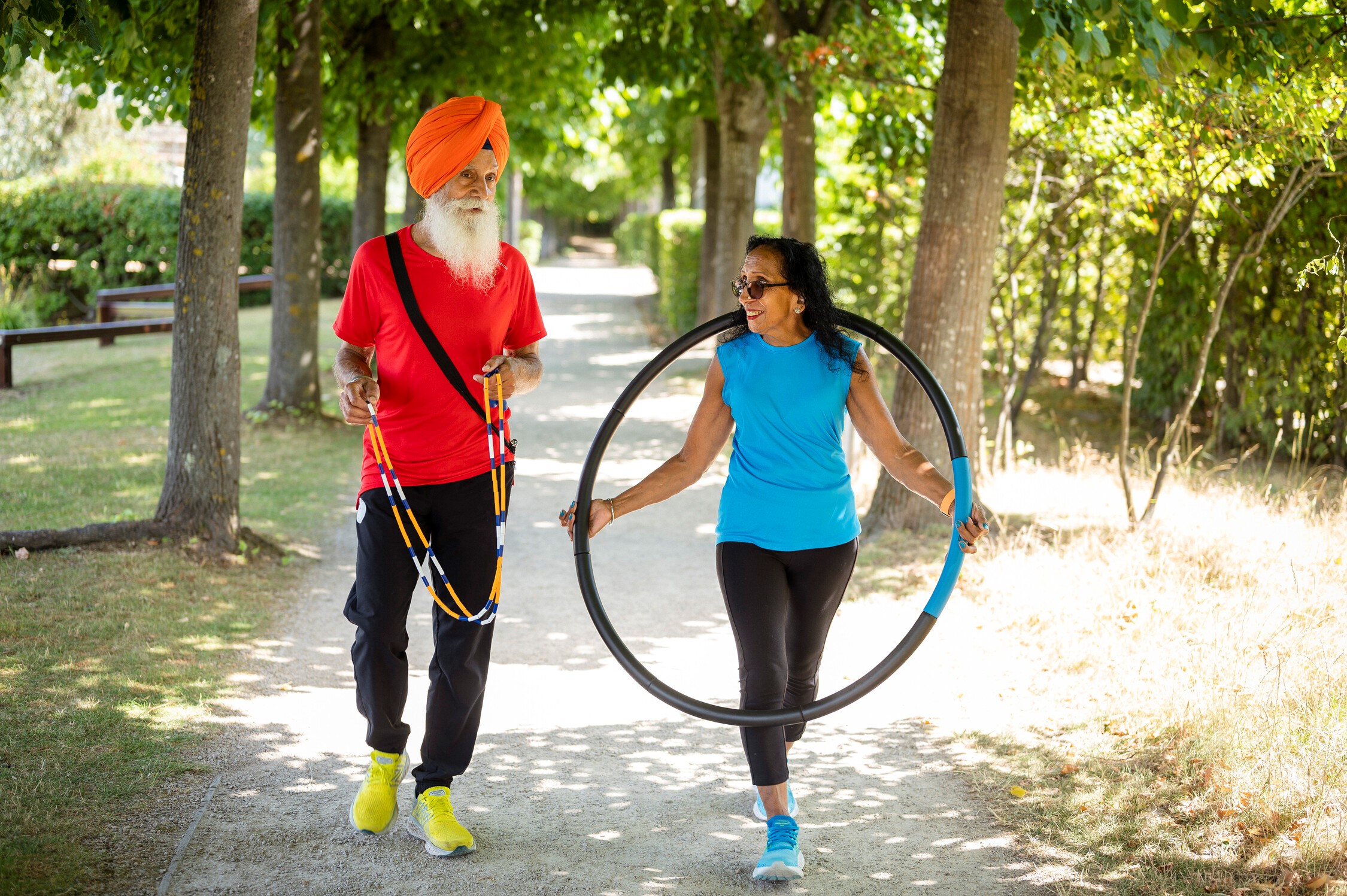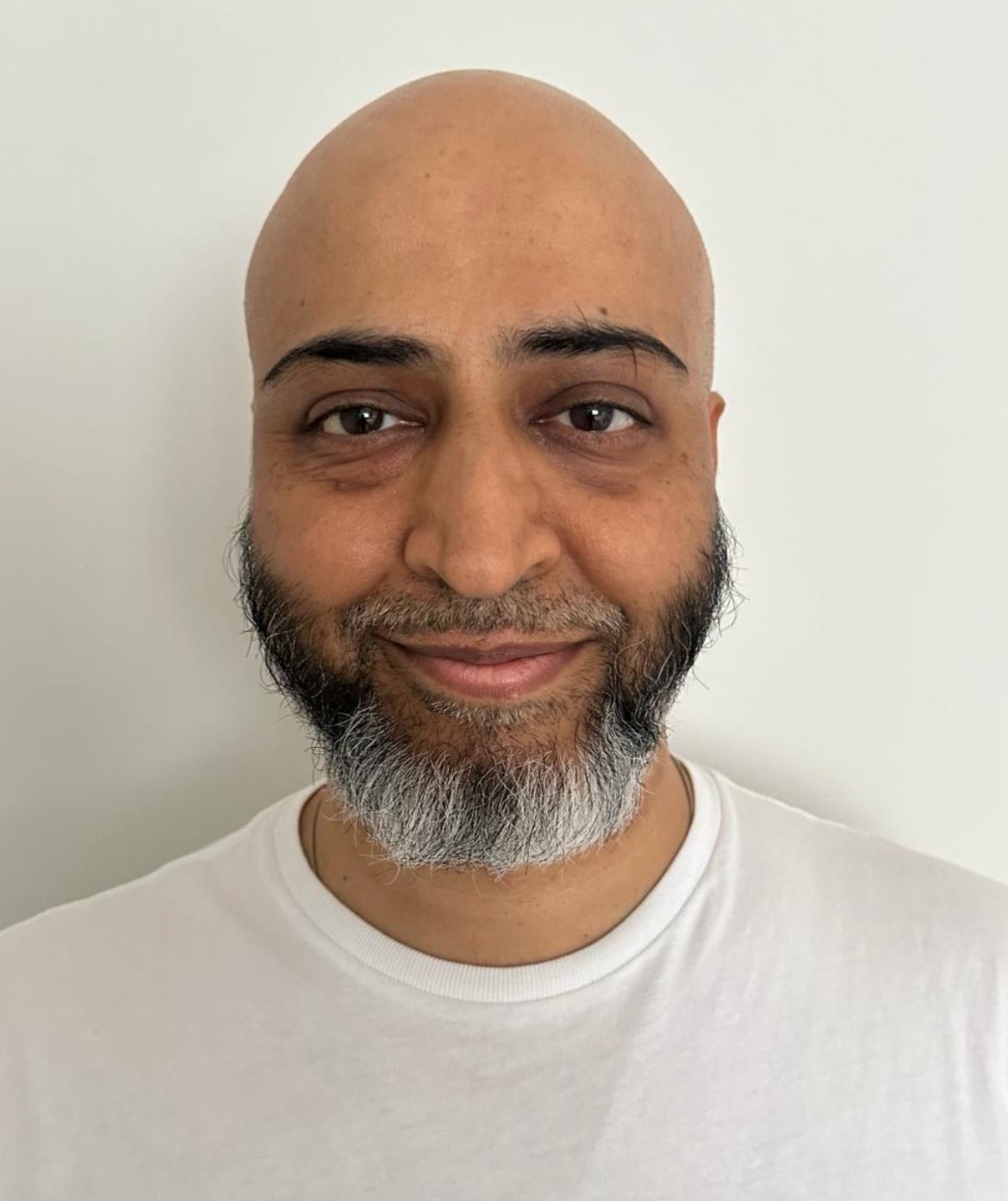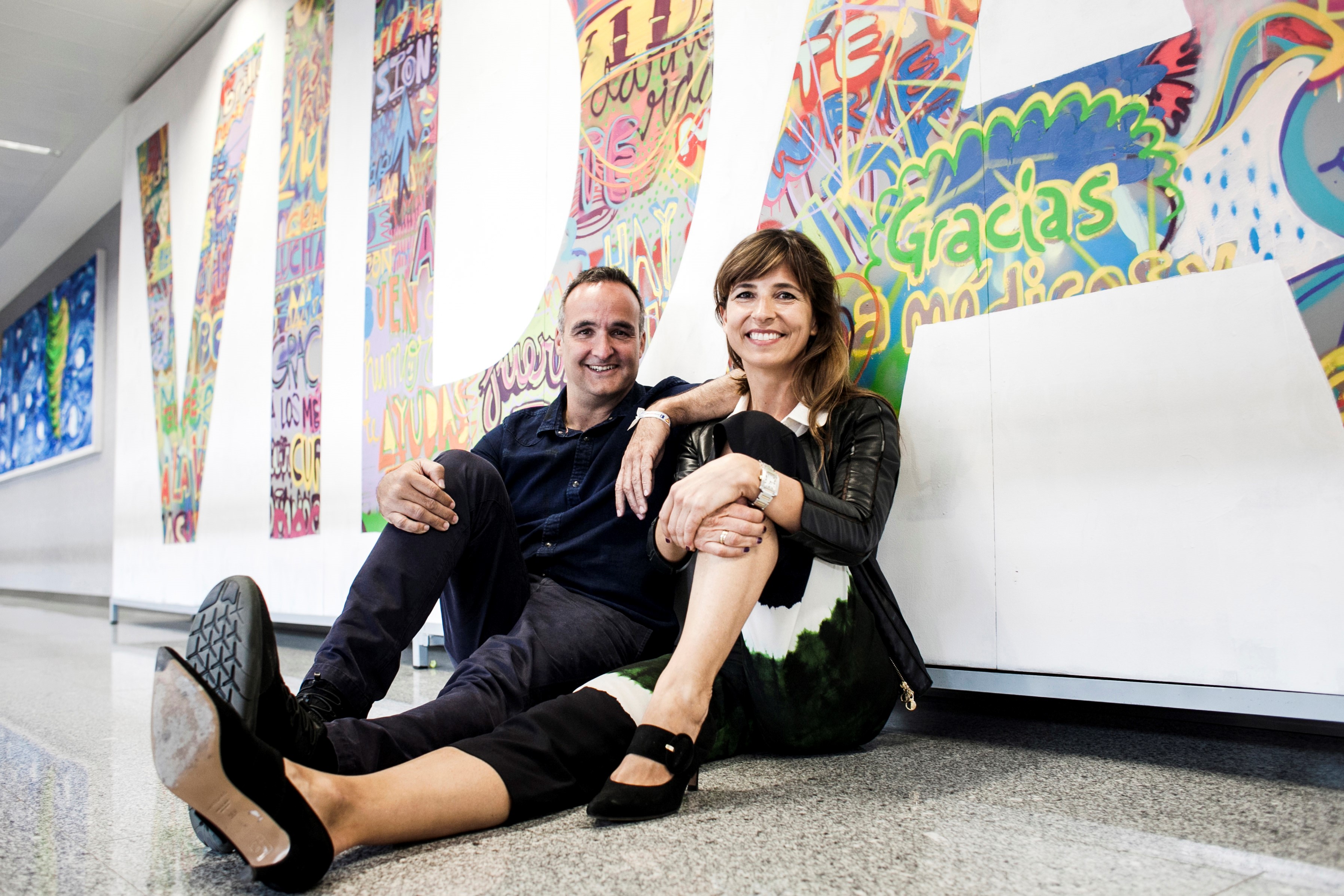“I want to break the taboo surrounding cancer in the Asian community” – Pritpal’s story

Image: Pritpal and her husband Rajinder. Credit: 'Ageing Better'
I was a fit and healthy woman until I was diagnosed with myeloma in 2023. I’m 73, and three years ago I learnt how to hula hoop! My husband Rajinder and I used to visit local schools to teach children the value of exercise.
I also enjoyed running and made it to mile 17 of the London Marathon in 2023 before I had to pull out with severe cramp. A few months later, I was finding it hard to take a full breath and my ribs were hurting on one side, so I went to my GP.
I was finally diagnosed with myeloma after months of misdiagnoses and delays in testing. Cases in Asians are relatively low but in my experience, when symptoms such as muscle fatigue and back pain appear, they seem to be explained away. I want to raise awareness about this cancer and break what I believe to be a taboo surrounding cancer in the Asian community. I noticed there is a stigma around cancer and people don’t want to talk about it and some don’t even want to give you a hug.
My treatment is chemotherapy, and I am in my last cycle of two treatments a month. After this I will have one treatment a month indefinitely. I’ve really struggled with swelling, tiredness, loss of appetite and bone pain. I’m really looking forward to finishing this cycle and getting back to my running and other fitness activities.
Although I’m grateful for the treatment, I am happy to know that scientists are working hard to develop kinder and smarter drugs to treat cancers such as myeloma. I hope treatments become less frequent but more targeted as time goes on. It’s really good to know how far the research has come.
I hope that by sharing my story, it helps the Asian community to understand that it’s better to talk about cancer, as you may help others to feel less isolated and alone. I felt this way until I found others who like me are also diagnosed with myeloma. Talking can help in many ways - why hide it? I want to do something to serve others because as a Sikh, that’s what we do.
“I’m so grateful for research” – Rayaz’s story

Image: Rayaz. Credit: Rayaz Chel
I was diagnosed with myeloma in February 2020. A routine blood test had alerted doctors the previous year that something might be wrong and there had been a ‘watch and wait’ protocol.
The coronavirus pandemic delayed my treatment for a couple of months, but I then started on a combination therapy of drugs that target proteins in cells and stop cancers developing. In November 2020 I had a stem cell transplant and then started maintenance treatment in March 2021.
As well as myeloma, I also have haemophilia and there is no one across the globe registered with both, so that has been an additional consideration in my treatment.
Life expectancy for me is just a figure – I’ve been told ten years, but no one, with or without cancer, is guaranteed any amount of time to live. For me it’s all about making the most of what I’ve got.
I’m 45 now and have spent over 20 years of my life working for the NHS. I’m a Programme Director and my employers have been very supportive, giving me the time I need for my treatment and the ability to work from home.
Unfortunately, I relapsed in 2022, and in May 2023 I started my second line treatment which is carfilzomib, a type of chemotherapy drug, and dexamethasone, a steroid. I've just started cycle 10 of treatment, with at least 2 or more cycles to go, followed by potentially moving to maintenance treatment. There are side effects so I’m not currently working at the moment, but the doctors are trying to get these under control.
Being diagnosed with cancer has changed me. I am a husband and a dad to young children and during the week I was on call a lot of the time and didn’t always see as much of them as I wanted to. Cancer has helped me to reflect on what’s important - and family life to me is very important.
I’m so grateful for research. Obviously what any cancer patient is looking for is a cure, but in the absence of that, the development of new treatments is crucial.
If I had been diagnosed 30 years earlier at the age I am now, I don’t think I would be here now.
Several new lines of treatment have come out in recent years, and I’m hopeful that there will be more in the pipeline.
“A clinical trial saved my life” – Lola’s story

Image: Lola with her husband Diego. Credit: Lupe de la Vallina for 'El País Semanal'
I was 37, with two young children and a successful banking career, when I was diagnosed with myeloma. It was advanced and incurable. Conventional treatment did not work, and I was given just four months to live. Then my husband Diego found me a place on a clinical trial that saved my life.
Diego and I founded the CRIS Cancer Foundation in 2011, because we wanted to give the same chance that I had to the many other patients who do not respond to standard treatment.
CRIS Cancer Foundation has headquarters in the UK, Spain and France and encourages donors and companies in each country to support cutting-edge research projects in each location. We also encourage collaboration amongst researchers from these countries to accelerate the discoveries and apply them to patients as soon as possible.
In the UK, CRIS Cancer Foundation’s main partner is the ICR and we are really proud to support their projects. So far, we have donated over £2 million to support research into myeloma, childhood brain tumours and thoracic cancer. CRIS has established a new immunotherapy lab and it is supporting the centre of translational immunotherapy.
Since we first established the CRIS Cancer Foundation, we have looked to the ICR as a benchmark of professionalism and excellence in cancer research.
I was recently thrilled to be awarded an honorary degree by the ICR in recognition of our work. We share the same mission and commitment to defeat cancer and, together, we aim to make a real difference in people’s lives.